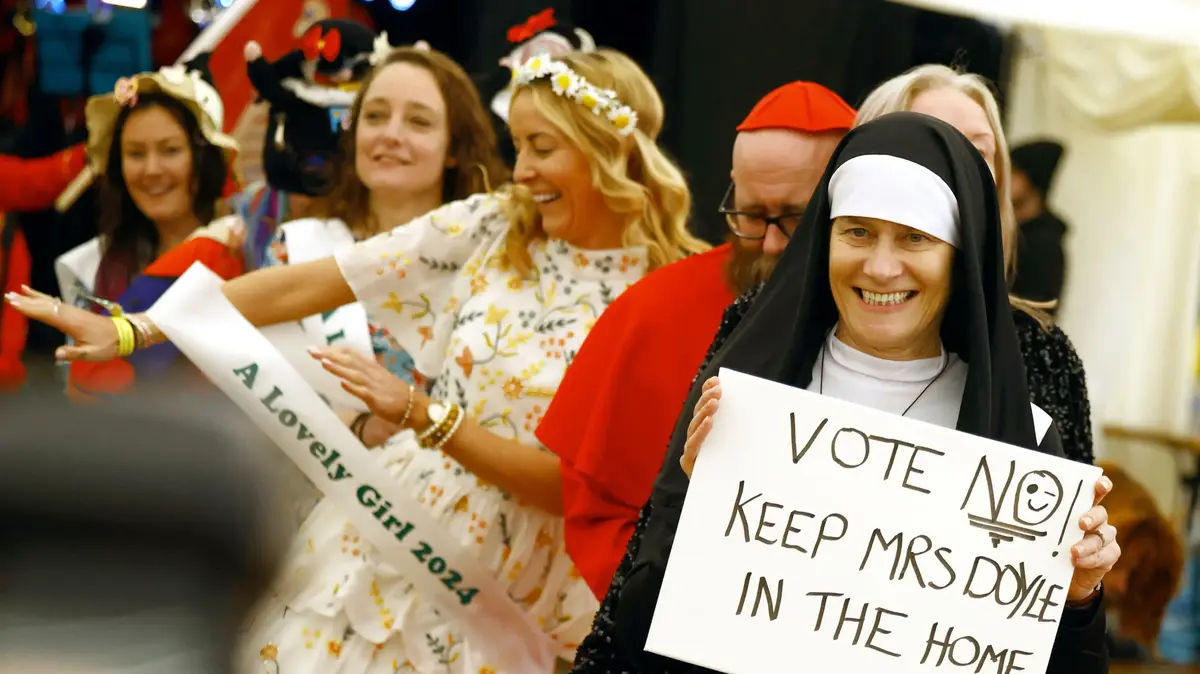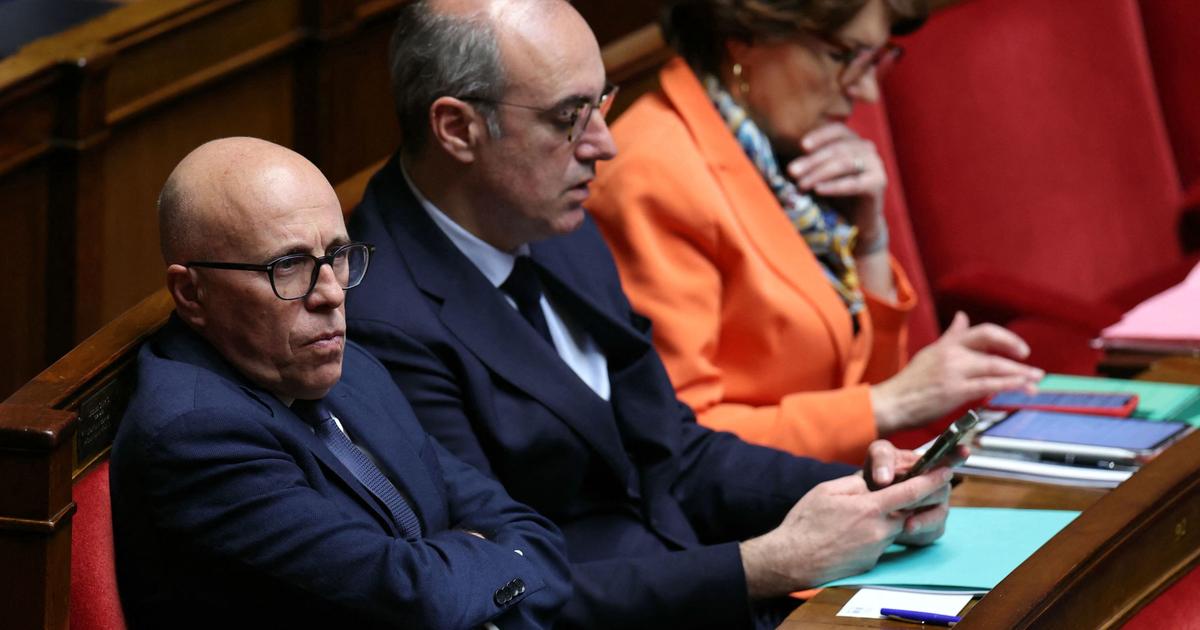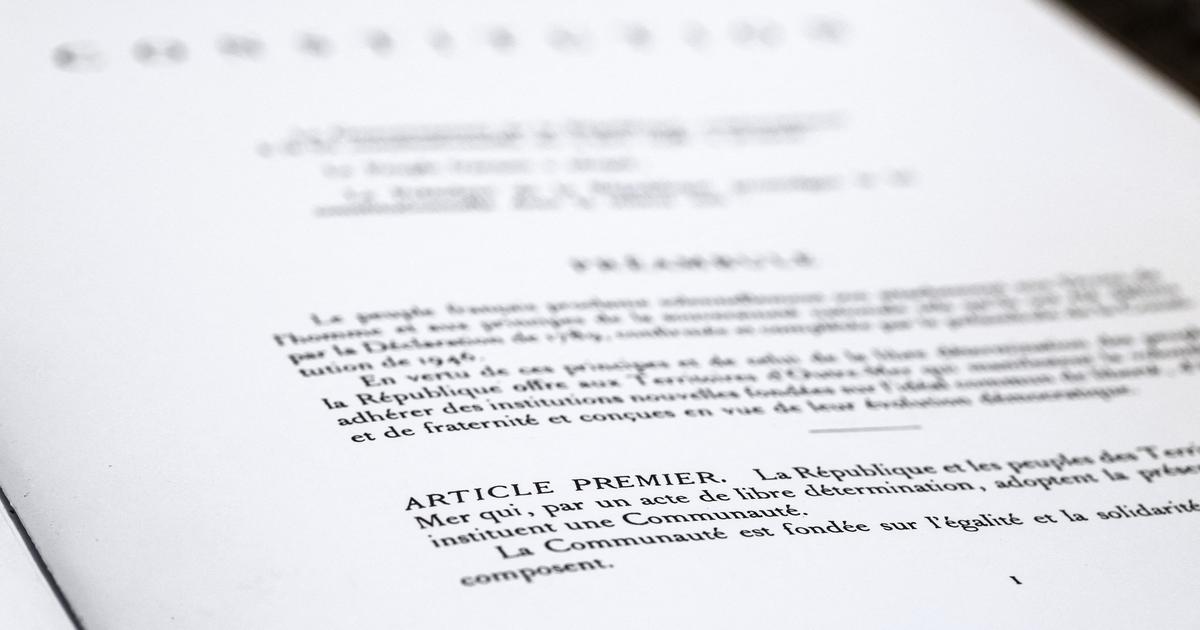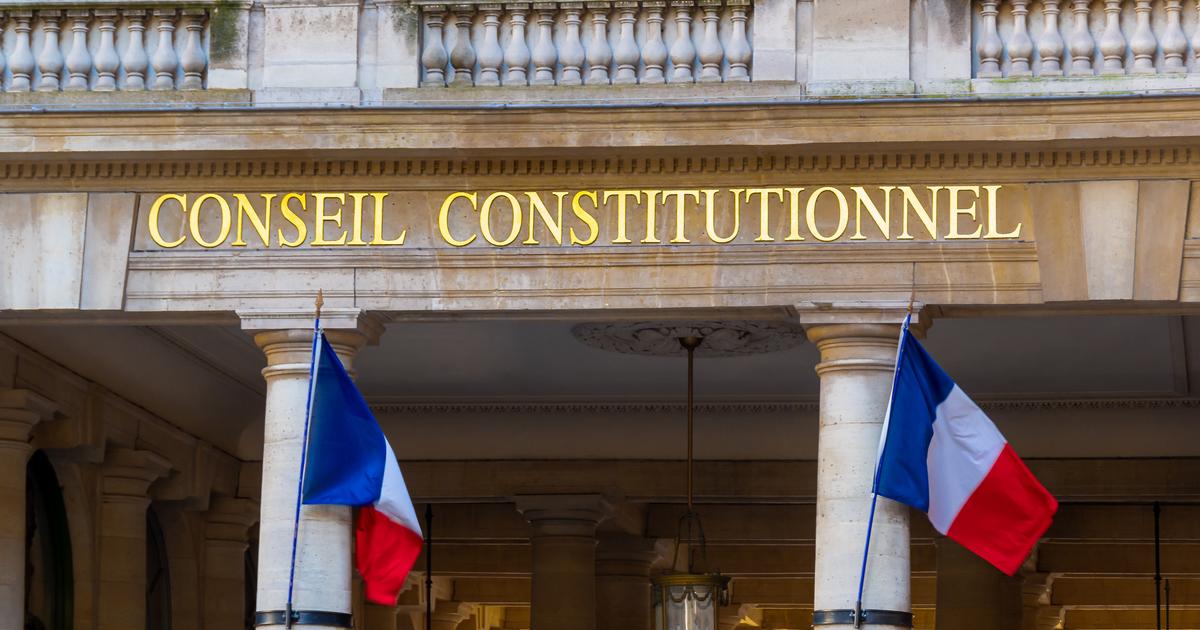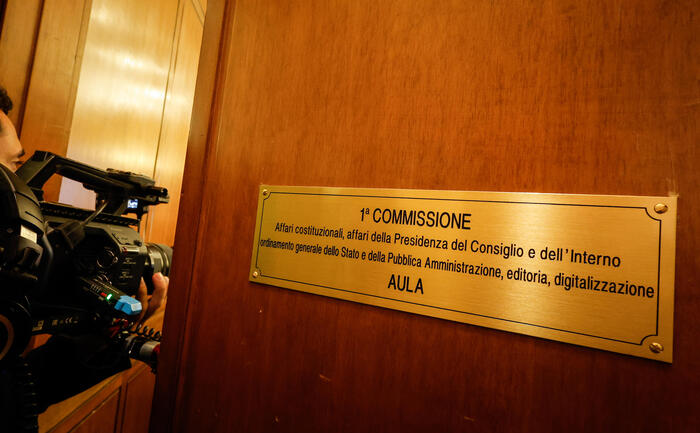A few hours before the opening of the polling stations, hardly any poster recalled in the streets of the Tunisian capital the celebration this Monday of a referendum on the new Constitution sponsored by President Kais Said.
It is due in part to the fact that the majority of the opposition has called for a boycott of the consultation, so no one doubts the victory of the yes vote.
The only unknown revolves around participation, which will serve to measure the legitimacy of the new Magna Carta and the popularity of Said, who exactly one year ago arrogated full powers to himself, initiating an authoritarian drift that threatens to put an end to the only democratic experiment that emerged from the Arab Springs.
According to analysts and legal experts, the draft Constitution designs a hyper-presidential system, tailored to Said's ambitions.
“The concentration of powers in the hands of the president is very significant, and there is no real control mechanism [of his actions]... The president can decide virtually everything,” says Zaid al Ali, adviser on constitutional processes at the
think tank
IDEA.
Unlike the 2014 Constitution, the first in the history of the North African country drawn up in democracy, the proposed draft does not include any mechanism for Parliament to dismiss the president.
On the other hand, this one can dissolve the cameras in a discretionary way.
Said, a 64-year-old independent politician, was elected president in 2019 with more than 70% of the vote.
With a reputation for integrity and austerity, in his campaign he denounced the "corrupt" political class and promised to break with a decade of disappointments in a democratic transition that failed to improve the population's standard of living.
Nobody imagined then that he would dare to resort to article 80 of the Constitution, reserved for emergency situations, to rule by decree and dissolve Parliament, a decision that the opposition described as a "coup d'état".
Since then, the president has been neutralizing all the institutions that could represent a hindrance, including the Superior Council of the Judiciary, in charge of ensuring judicial independence.
The tension with the judiciary caused the judges to go on strike during June, after Said retired 57 magistrates early.
In addition, some opponents and critical journalists have been arbitrarily prosecuted, in some cases in military courts, as Amnesty International has denounced in a recent report.
A dependent judiciary
The lack of guarantees in the protection of human rights and civil liberties is one of the most pointed criticisms reflected in an evaluation of the Magna Carta draft prepared by the International Commission of Jurists, entitled "Codifying autocracy."
“The text sponsored by President Said embodies the crystallization of most of the illegitimate measures that he has adopted since July 25, 2021 ″, reads the document, highly critical of the null separation of powers of the new system.
In fact, the judiciary is considered “a function of the State”, not an independent power.
Although the office of president will continue to be put to the polls, the text raises questions about the democratic nature of the new political order.
To begin with, the head of state will be the one who dictates the electoral law for the legislative elections, scheduled for next December 17.
The deputies will not enjoy immunity and may be revoked by means of a vaguely collected mechanism.
Regarding the role of Islam, the new Magna Carta no longer defines Tunisia as "a Muslim country", but it does consider it part of the
umma
or "Islamic nation", attributes to the State the responsibility of achieving "objectives" of Islam and demands that the president professes this religion.
The wording has disappointed Said's more secular supporters.
The main actors of Tunisian civil society have censored the text not only for its content, but also for its gestation process.
“This draft Constitution is the result of a unilateral and exclusive process.
It has not been consulted with civil society or political parties... but it reflects only the vision of the President of the Republic”, says Romdhane Ben Amor, spokesperson for the Tunisian Forum for Economic and Social Rights.
Last Friday, the police violently dissolved a demonstration contrary to the Constitution called by civil society entities that ended with several injuries and nine detainees.
Hamma al-Hammami, a left-wing activist and former political prisoner, grapples with police during a protest by civil society groups against the referendum in Tunis on Tuesday.
ZOUBEIR SOUISSI (REUTERS)
After an online consultation in which barely half a million of the country's 12 million citizens participated, the president handpicked a commission of jurists to draft the new fundamental law.
The president of the commission, Sadok Belaid, has warned that the final wording is quite different from the one he presented to Said – who is a professor of Constitutional Law – and has distanced himself from it.
The vast majority of political parties, including the five most voted in the last legislative elections, reject both the Magna Carta project and the political process that has shaped it.
For this reason and due to the lack of confidence in the Electoral Board, whose members were replaced by Said in the spring, they have decided to boycott the referendum.
“If Kais Said took us onto their pitch, we would definitely lose,” says Samira Chaouachi, deputy speaker of the dissolved parliament and Qalb Tunis leader.
This populist party, like the historic Ennahda Islamist movement, is part of the opposition National Salvation Front.
Several other minor parties, such as the liberal Afek Tunes, have opted for no.
Only a small group of pan-Arabist and far-left parties, such as the Popular Movement, have supported the presidential agenda since Said decreed his "exceptional measures" last summer.
In their appearances in the media, their representatives have argued the need to put an end to the current semi-presidential system, similar to the French one, for having led to a political blockade due to the usual discrepancies between the Head of State and the legislature.
Said, for his part, has denied intending to establish a dictatorship and has defended the need to approve a new Constitution to transform a corrupt system.
As there is no minimum participation threshold, the mobilization of the electorate will be especially useful to measure the popularity of the president.
"Support for Said has eroded compared to last year, but he maintains the support of a core of supporters and, if there were to be presidential elections, he would win them again," believes analyst Mohamed Dhia Hammami.
The president's best ally is the rejection aroused by the traditional political class, especially the Islamists of Ennahda, who have been present in one way or another in the ten post-revolutionary governments.
For this reason, rather than benefiting the opposition, the growing disenchantment with Said has multiplied political apathy among Tunisians.
The context of economic difficulties and a probable structural adjustment agreed with the IMF suggests that the UGTT
,
the great Tunisian union, will become the main pole of opposition to Said.
"At the moment, the UGTT is paralyzed by internal divisions, which is why it has given its members freedom to vote," slides Dhia Hammami.
As with the UGTT, Said's project provokes a division in Tunisian society that the referendum threatens to aggravate.
Follow all the international information on
and
, or in
our weekly newsletter
.

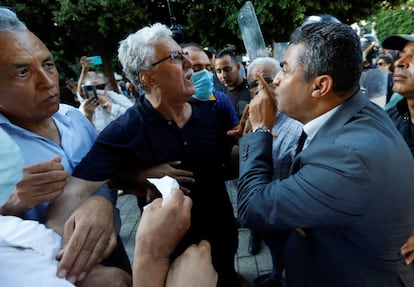
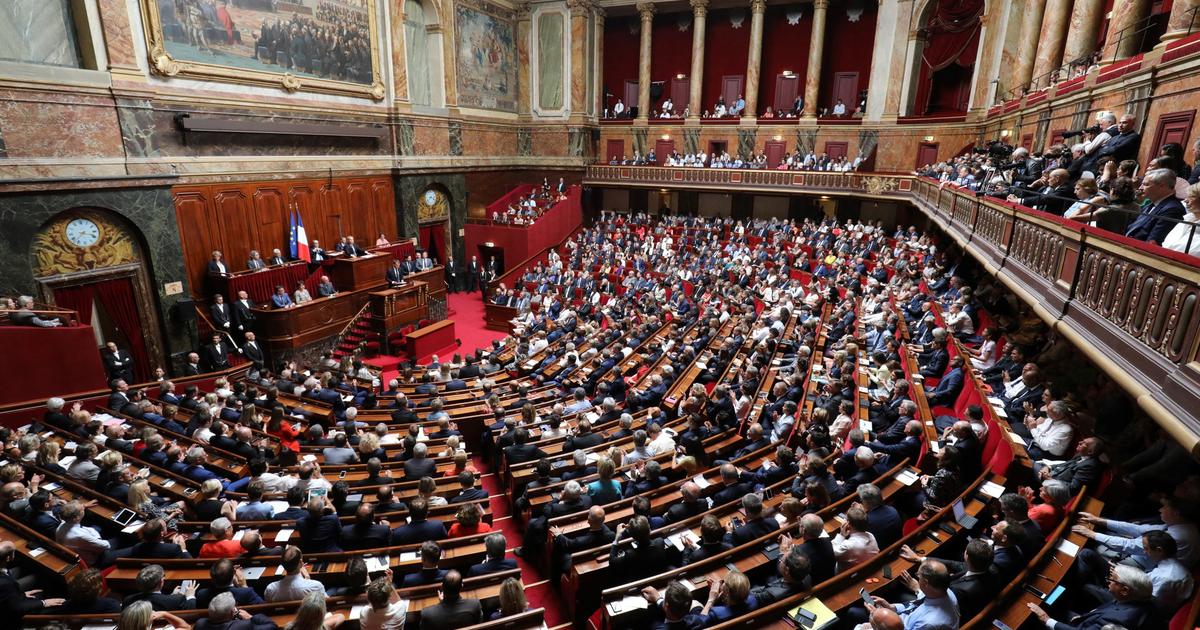
/cloudfront-eu-central-1.images.arcpublishing.com/prisa/OCS7V4Q6YKB6UMI76BXPPNGQJE.jpg)
/cloudfront-eu-central-1.images.arcpublishing.com/prisa/NYNKKIEXBFHFFG6GV65QVUUAL4.jpg)
